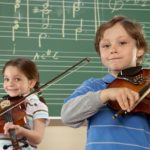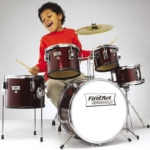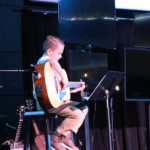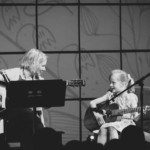What is the Best Age for My Child to Start Music Lessons? A Parent’s Guide by Age
If you’ve ever caught your toddler drumming on the table with a spoon or your kindergartner belting out songs in the backseat, you might wonder: Is it time for music lessons? The truth is, there’s no one-size-fits-all answer — but there are helpful age-based guidelines to help you decide.
Whether you’re raising the next Mozart or simply want to nurture your child’s creativity, this guide walks you through the best time to start, based on your child’s age and stage. Let’s answer the question, what is the best age to start music lessons?
Ages 0–3: Music Exploration and Bonding
While formal music lessons aren’t usually recommended at this stage, exposure is everything. Singing lullabies, clapping rhythms, and dancing around the living room are wonderful ways to introduce music early. Baby-and-me music classes can be a great bonding activity and help little ones develop listening skills and rhythm awareness.
What to try:
-
Parent-child music classes
-
Singing together at home
-
Musical toys and instruments (shakers, drums, xylophones)
Ages 3–5: Music Classes for Preschoolers
This is a magical age when imagination and play come naturally — and music can support both! Preschool music classes often focus on movement, rhythm, call-and-response singing, and basic musical concepts in a fun, pressure-free environment.
Structured instrument lessons can be introduced gently around age 4–5, depending on your child’s attention span, motor skills, and interest level. Group classes for piano, violin, or ukulele are great ways to ease in.
What to try:
-
Group music classes with movement and singing
-
Short trial lessons for piano, violin, or ukulele
-
Rhythm games and sing-alongs at home
Ages 6–8: Ideal Age to Start Private Music Lessons
By this age, most kids are ready for more formal instruction. They can follow directions, sit for a lesson, and begin practicing on their own at home (with gentle parental support). Piano and violin are popular starter instruments, but voice lessons, guitar, and drums are great choices too.
At this stage, it’s important to choose a teacher who specializes in working with young beginners — someone who makes lessons fun and confidence-boosting.
What to try:
-
Private or small group instrument lessons
-
Beginner voice lessons (with playful, age-appropriate technique)
-
Encouragement to perform for family and friends
Ages 9+: Time to Try or Switch Instruments
Older kids and tweens may be ready to explore more complex instruments like flute, trumpet, or saxophone, especially if they’re joining school band or orchestra. If they’ve been taking lessons since a younger age, this can also be a good time to try something new or advance to a more challenging level.
Kids who start later can still catch up quickly with the right motivation and support.
What to try:
-
Joining school music programs
-
Continuing or advancing private lessons
-
Trying a new instrument for fun or self-expression
Final Thoughts: Follow Their Lead
The best age to start music lessons depends on your child’s personality, interests, and readiness. Some kids are eager from age 4, while others benefit from waiting until age 7 or 8. The key is to keep music joyful and let your child’s natural curiosity lead the way.
Whether you’re exploring music lessons for preschoolers or considering private instruction for an older child, the benefits are lifelong: stronger cognitive skills, improved confidence, and a deeper love for the arts.
Ready to get started? Your child’s musical journey can begin today — no matter their age.
Signing up for lessons is easy!
- Send us more information about your goals
- Register with us now!
- Give us a call at (402) 576-5792



